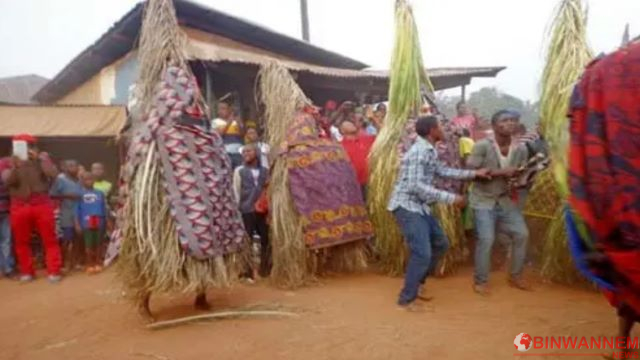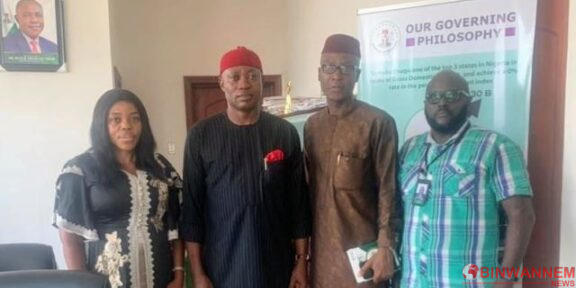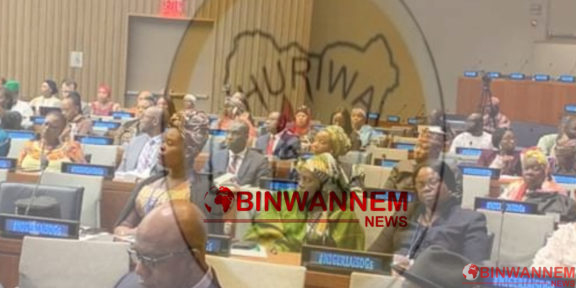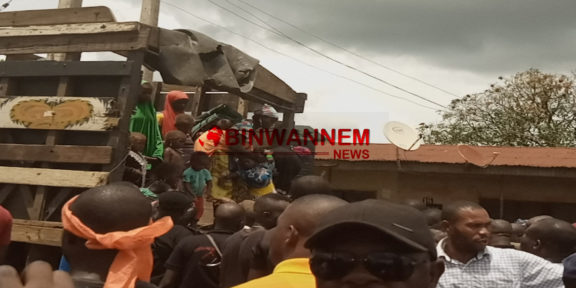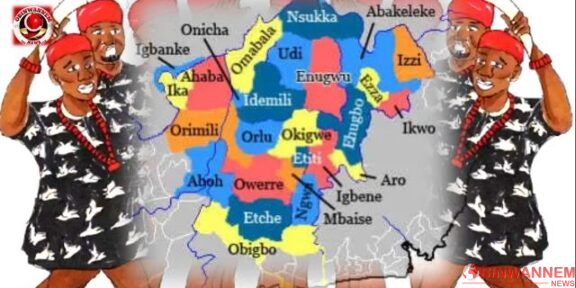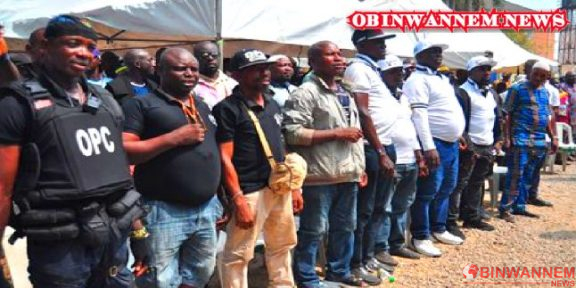IGBO CULTURE AND SOCIETY: Odo Cultural Festival of Akpugo Ezedike Akpugo of Adada quarter of Uzo Uwani in Nsukka
One of the components of Uzo Uwani’s Adada quarter is Akpugo. The only town in the Uzo Uwani Local Government Area that hosts the Odo masquerade festival is this one, which makes it unique. My field observations led me to believe that this was a result of their cultural interactions with Aku town in the Igbo Etiti Local Government Area. The distinction between visible and invisible masquerades is used to classify masquerades performed in Igbo cultures into several groups. The people who are invisible masquerade because they are not meant to be seen and hence cannot be captured in pictures.
An indigenous person claims that the whole public, especially those who have been initiated into performing society, can hear the unseen masquerade. When they decide to act, no outward forms are displayed; instead, only noises are permitted, and the information is only shared with those who have been initiated into the masquerade cult. If the invisible masquerade desires to perform by day, cult enclosures will be enforced on initiated members to keep the masses from coming out. The northern Igbo regions of Igbo Odo and Igbo Omabe are where you can find this enclosure.
Having said that, it is crucial to note that things went wrong with my respondent’s above submission as a result of Westernisation and Christianity, and some of these practices were altered. Most people no longer follow the rules of the Odo masquerade cult in the area. Regardless, the festival has a significant impact on the area’s cultural and religious tourism. Despite the changes in practices surrounding the Odo masquerade cult, the festival continues to draw visitors from far and wide who are eager to witness its rich cultural traditions.
According to another local indigenous, during the Odo celebration, people hope that Odo will return their petitions to their ancestors, who will then grant their wishes by giving them a bountiful harvest, peace of mind, fertility, and other blessings. In addition, the people seek Odo for longevity and confess their faults to him. Barren women also beg for children.
The Odo festival has recently suffered from a lack of public awareness; the majority of people are completely unaware of what is going on around them. Also, many have the mistaken belief that heritage materials belong to the past and should be treated as such. In contrast, Christianity played a significant role in this negligence. The influence of Christianity led to a decline in the importance placed on traditional festivals and cultural practices. As a result, the Odo festival, once a vibrant and integral part of the community, has been overshadowed and forgotten.
Most people have abandoned their fundamental obligations in favour of their newfound faith, and this sole abandonment has done far more harm than good to the raising of children in the area. Some of our costumes were viewed as a barrier to the spread of Christianity. The festival’s situation is comparable to that of masquerade festivities in Igbo countries, which have been pushed to the background by Christianity and Western civilization. The organisation is no longer what it once was due to the attitude of the Christian community.
In conclusion, the clash between traditional customs and the influence of Christianity has had a detrimental impact on the cultural practices and values of the community. Individuals need to find a balance between their faith and their cultural heritage to preserve the richness and diversity of their traditions. The celebration of festivals and ceremonies should be seen as a way to unite the community and pass on important values to future generations, rather than as a threat to religious beliefs. The community needs to come together and find a way to embrace both their faith and their cultural identity to ensure a harmonious and prosperous future.
Written by Jideofo Okibe,(Obinwannem News correspondent Enugwu State)
Date: April 16, 2024
Ubochi Eke oku
Published by Ngozi Odoh (Obinwannem Nsukka Office Secretary)


